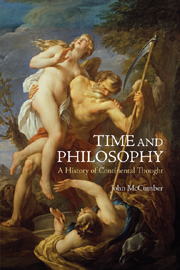Book contents
- Frontmatter
- Contents
- Acknowledgements
- Abbreviations and note on texts
- Introduction
- I Germany, 1790–1890
- II Germany and America, 1900–1968
- 6 The return of traditional philosophy: Edmund Husserl
- 7 The finite future: Martin Heidegger
- 8 Activity and mortality: Hannah Arendt
- 9 The twilight of Enlightenment: Theodor W. Adorno and Max Horkheimer
- III France, 1945–2004
- IV Onwards, 2011–
- Further reading
- Bibliography
- Index
6 - The return of traditional philosophy: Edmund Husserl
from II - Germany and America, 1900–1968
- Frontmatter
- Contents
- Acknowledgements
- Abbreviations and note on texts
- Introduction
- I Germany, 1790–1890
- II Germany and America, 1900–1968
- 6 The return of traditional philosophy: Edmund Husserl
- 7 The finite future: Martin Heidegger
- 8 Activity and mortality: Hannah Arendt
- 9 The twilight of Enlightenment: Theodor W. Adorno and Max Horkheimer
- III France, 1945–2004
- IV Onwards, 2011–
- Further reading
- Bibliography
- Index
Summary
In the mid-1930s, a young woman from the privileged northern suburbs of Chicago came to Freiburg, Germany. Her purpose was to study with Germany's most famous living philosopher, Edmund Husserl. Husserl was then in his late seventies, and was known to her and the world as the founder of one of the twentieth century's most influential philosophical schools, “phenomenology”. Since he had retired from his professorship at Freiburg, and as a world-famous philosopher had many demands on his time, she must have believed her main hurdle was getting his approval for her programme.
What she found was very different from what she expected. Because Husserl had been born a Jew, he was being persecuted by the Nazi regime, which had severed all his connections with the university. This governmental action had been implemented in a university order forbidding him (on 14 April 1933) even to set foot on the university campus. One week later, his younger associate Martin Heidegger was appointed Rector of the university (and, in one of the most notorious episodes in the intellectual history of the twentieth century, joined the Nazi party). One week after that, whether at Heidegger's instigation or not, Husserl was reinstated as a retired professor and was able again to receive his pension. The whole affair had lasted only two weeks, but things did not get easy for Husserl.
- Type
- Chapter
- Information
- Time and PhilosophyA History of Continental Thought, pp. 127 - 158Publisher: Acumen PublishingPrint publication year: 2011



